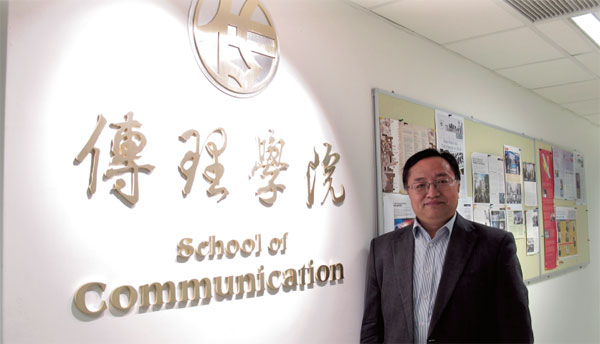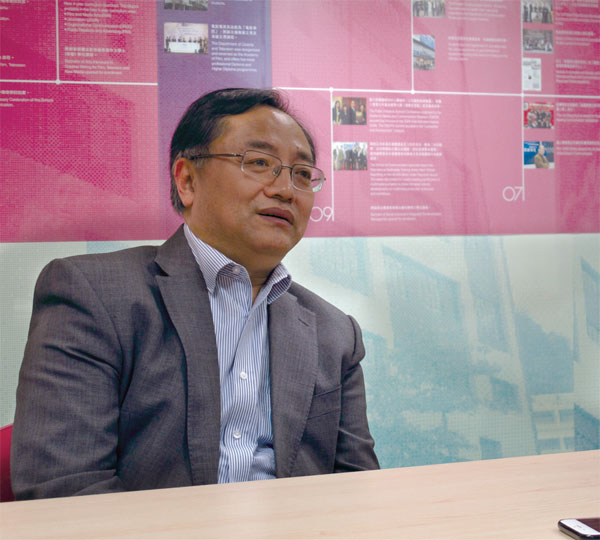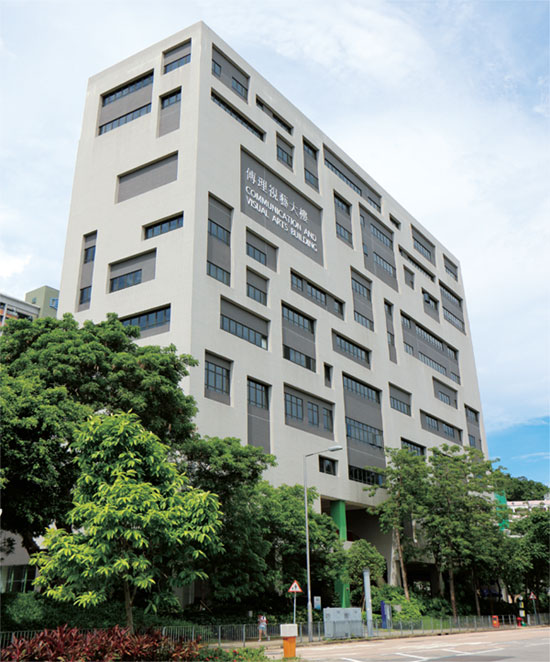Hong Kong journalism comes of age
Updated: 2018-08-16 07:29
By Evelyn Yu in Hong Kong(HK Edition)
|
|||||||
When Raymond Li Wen, the veteran BBC journalist and now director of Chinese Journalism at Hong Kong Baptist University (HKBU), gave up his well-paid job in a bank and went for a job interview with the BBC in 1991, it was his "fine voice", among other things, that landed him the post at the world's biggest broadcasting-media organization.
Since then, he recalls, the global media landscape has undergone tremendous changes as did the requirements for journalists in the new era.
The skills required of journalists have leveled up, says Li. Compared with his time, today's journalists are expected to be "all-rounders", rapidly switching roles between reporter, producer, editor or presenter in no time. But, he believes the fundamental attributes of a good journalist - critical thinking, acute discernment and the ability to absorb new things - have not changed. Programs offered at his school have been dedicated to nurturing young talents to become competitive, ethical, and critical professionals in journalism.
|
Raymond Li Wen, director of Chinese Journalism at Hong Kong Baptist University. |
|
Raymond Li Wen sharing his past experience working as a BBC journalist. |
Founded in 1968, the School of Communication at HKBU has played a unique role in Hong Kong journalism.
Back in the 1960s, journalism as a profession was practically non-existent. Editors were more dedicated to soliciting advertising business than producing good stories, and reporters would not hesitate to receive lai sees from organizations in return for offering favorable coverage. The whole industry was mired in unethical practices.
The creation of the School of Communication - the first of its kind in the dark ages of journalism - has changed the landscape of local journalism by instilling in graduates not only skills but, more importantly, a code of ethics in keeping with the best practices in the United States and the United Kingdom.
Li says emphasis on practicality also differentiates HKBU's journalism programs from its counterparts elsewhere
The university's department of journalism offers various programs to impart solid journalism skills and know-how; it invites Pulitzer award-winning journalists to share their experiences with students. The school also offers internships, exchange projects and study trips, giving students opportunities to put their skills to use.
To keep abreast of the times, the department has integrated data journalism and virtual reality journalism into its courses. It plans to provide a new program - Data and Media Communication - in September this year, in addition to its current three programs in Chinese Journalism, Financial Journalism and International Journalism. Last October, the school teamed up with Chinese mainland tech giant Tencent Holdings to set up an artificial intelligence (AI) media research laboratory to explore AI applications in journalism.
"When I first joined the BBC, only our voices would appear before audiences and during those days, many of my colleagues had been doing the same job for over 20 years and you would still be just fine. But, as a journalist today, you've to be flexible and have the capacity to be at various forefronts in the field," stresses Li, who formerly headed BBC Chinese from 2009 before giving up his journalism career and joining HKBU in 2016.
Thinking critically and independently is of utmost importance to a journalist, he reckons. "It's the duty of journalists to report news impartially, present the facts without retouching them, casting aside their personal views and leaving the readers to form their own opinions."
Students in his class are asked to read news reports from various media outlets on one single incident with a critical approach, reflect on the "divergence" of reporting, which is often the case in today's media scenario, and rethink what they can do to make the story more balanced and impartial.
Li would tell his students to extract information carefully for every interview - information about an interviewee's career or a family can be a good teaser that helps interviewees open up. Extensive reading is a prerequisite of a good journalist, as breadth of knowledge and intellectual depth eventually help journalists to foster critical thinking, and fend off any attempts by sources to "misinform" them for their own interests.
As the Chinese mainland emerges as a world economic and political powerhouse, Li encourages his students - 90 percent of the undergraduates being Hong Kong residents - to learn more about the dynamics and cultural context of the country.
Li recently organized a study tour of Tianjin, where the young media students acquired an immersive learning experience when they had "fried bread sticks" at the mainland port city's local eateries, and observed it street scenes. They also interviewed cross-talk actors, a traditional Chinese comedic performing art, in local teahouses and listened to the notoriously long speeches from local government officials - elements that are essentially "Chinese".
Do learn about your country but stay impartial in your reporting, Li exhorted his students.
Despite the challenging environment for global media today, Li is heartened that many of his students are "idealistic", they think highly of their profession and prioritize journalistic fulfillment before financial rewards.
Aligned with China's rise on the world stage, Li hopes the steady stream of HKBU graduates, who are poised to become reporters, editors, correspondents and producers in the print, electronic or online media, can be good storytellers in presenting a true picture of China to global audiences in a creative, critical and impartial manner.
evelyn@chinadailyhk.com
|
CVA Building of Hong Kong Baptist University. |
(HK Edition 08/16/2018 page19)


